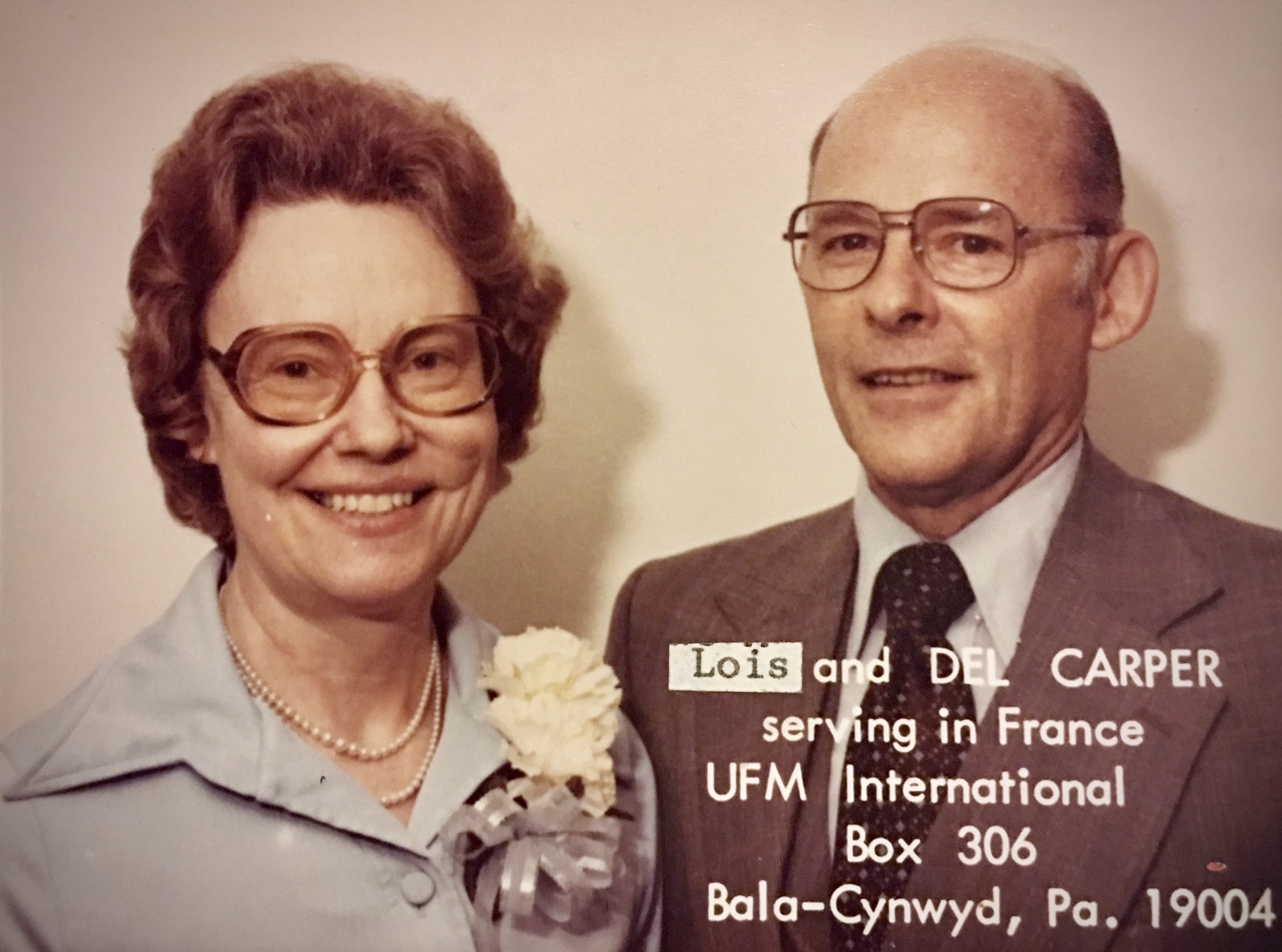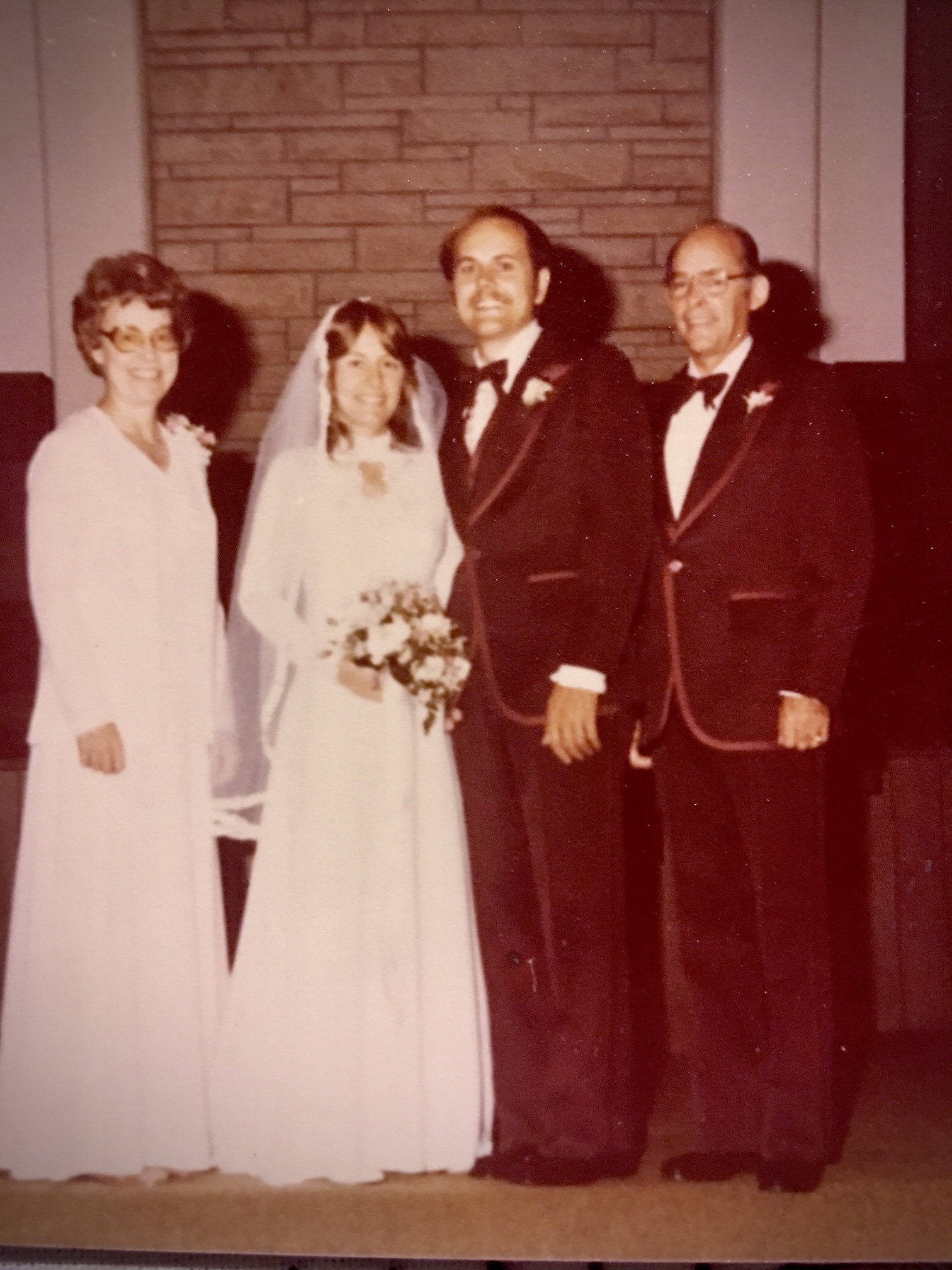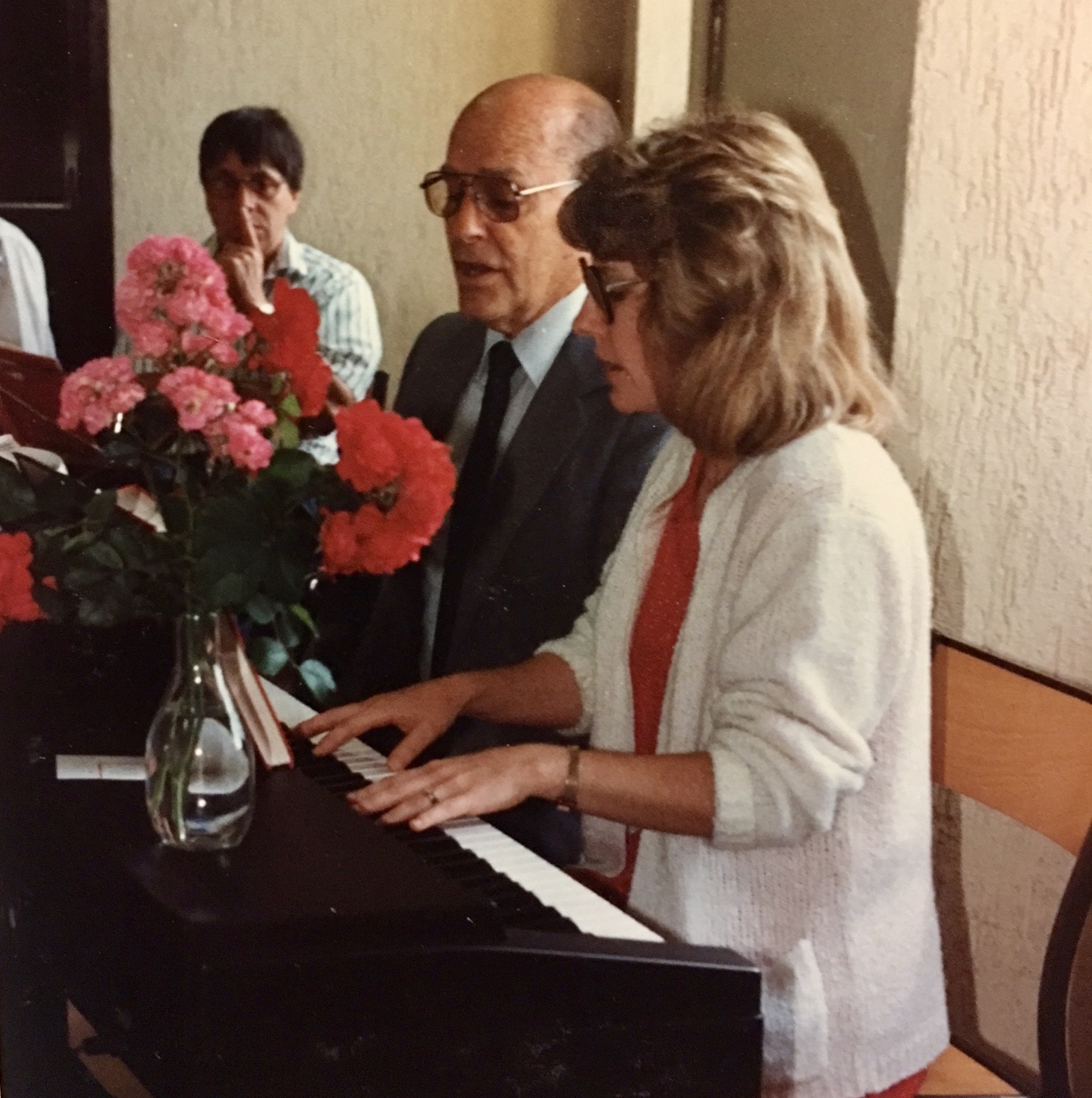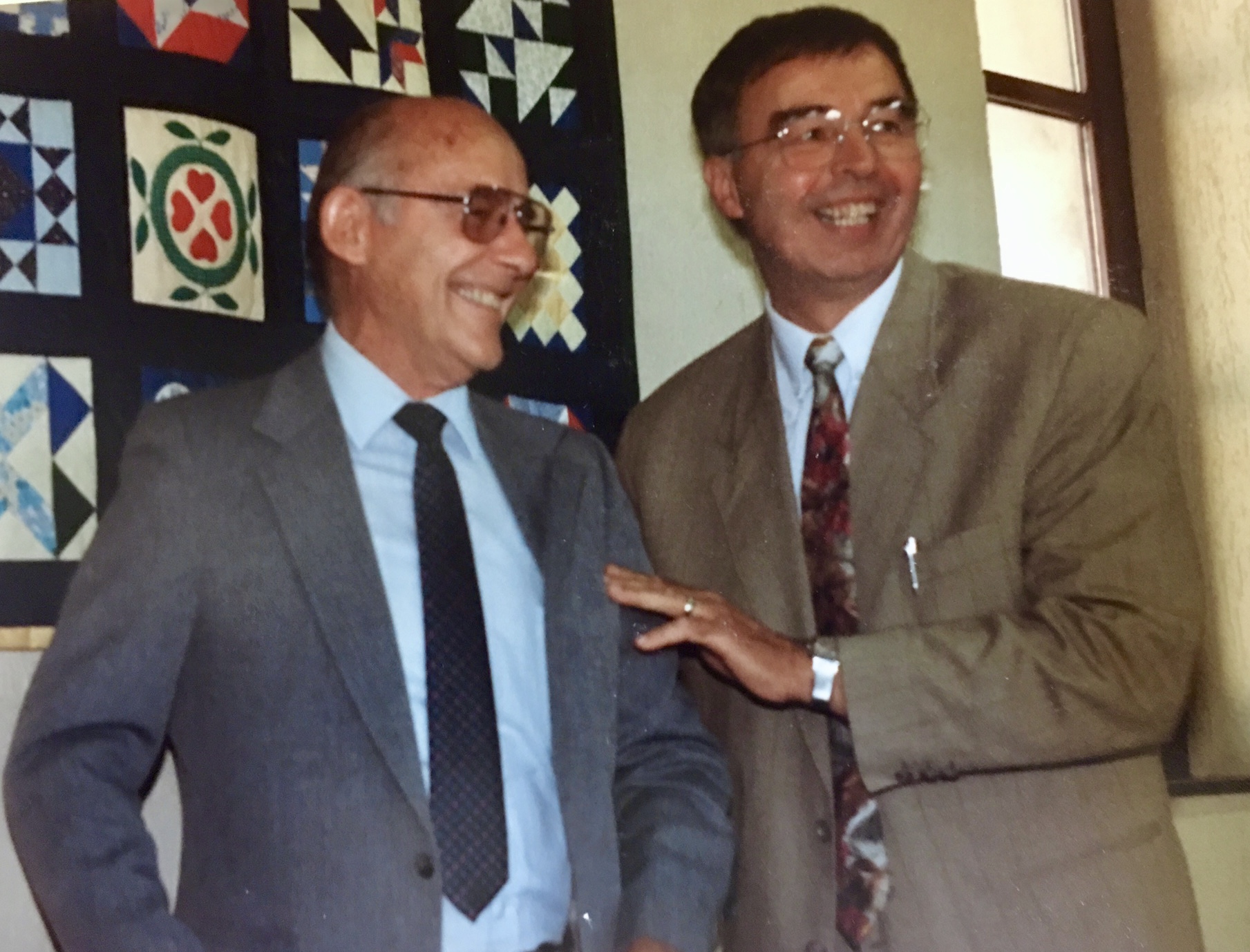
Last weekend Michelle and I visited some family friends in a city called Bourg-en-Bresse. These are families that knew my mom’s parents while they were missionaries in France. I recorded one of their stories in a newsletter sent at the same time as this post. If you are not yet receiving those newsletters and would like to, please request an add here.
Grandma C : My mom’s mom died of leukaemia when I was quite young, so I do not have many of my own memories of her. It was, therefore, a joy and an adventure to hear these long-time friends recount stories of things she had done or impacts she had made. A lot of the stories her friends told me were of meals she hosted in their apartment including “tuna rolls” which were not, as our California readers might suppose, sushi, but rather a baked dish wherein canned tuna was spread over a strip of dough that was subsequently rolled up and baked with white sauce. I’m imagining a cinnamon rolls but with tuna instead of raisins, sugar & spices in the middle. If that doesn’t sound appetizing, rest assured, it went over well with the French woman who copied the recipe and served it to her own family.

It seems that Grandma C also had a lot of space in her life for others. Another woman from the church told me that she deeply appreciated Grandma’s mid-week lunches. She would have one or more women from the church over to eat, talk, study and learn together. What struck this woman, now a grandmother herself, was how often Grandma was asking questions. “What do you think about this? How would the French respond to this situation? How could one explain this idea to someone with a different background?” This woman found such curiosity endearing and disarming.
I think that one of the chief advantages we get for living abroad is seeing how another group of people respond to the universal difficulties and challenges of life. Ironically, it is in requesting those insights that we get the chance to confer some of the that benefit on our friends from other cultures. But that humility seems a prerequisite and truly stood out to this dear friend even thirty years after Grandma died.

Grandpa C : One of my favorite anecdotes about Grandpa C from our time with these families in Bourg-en-Bresse has to do with bananas. There was a time after my grandma died that my grandpa stayed in the home of another family from their church. One afternoon one of this family’s children offered Grandpa an overripe banana, perhaps in an overly aggressive way (as children sometimes do). Grandpa’s exact response escaped the hearing of the boy’s mother, but the child quickly left to entertain himself outside or elsewhere. Afterwards she asked my grandpa about the bananas and he replied, “I’m terribly sorry, but even the smell of overripe bananas doesn’t agree with me.” I’m not sure I got the quote right, but it really touched her how gentle he was even in expressing a negative opinion. (We speculated that it might have had to do with the time he spent as a hostage in Congo or his service as a submariner in WWII.)
“He helped us repair our house.”
“He’s the one who put up this wallpaper. Look, it has lasted 30 years without peeling.”
“He knew how to get anything working again.”
“He taught me a lot about gardening. I still have the tools he gave me when he left.”
“When they left on furlough, they let a struggling young woman stay in their house.”
“I never, ever saw him get angry or lose his composure.”

These are just some of the testimonies given about Grandpa and the impression he left on people. In some ways, it strikes me just how ordinary most of those memories seem. Home improvement and maintenance. Sharing hobbies. In many ways I grew up thinking of the grand adventures Grandpa C must have had – the travails of growing up on a farm during the Dust Bowl and Great Depression, the trials of Navy life in the Pacific theatre in the 1940s, the turmoils of bringing your wife and young daughter to Zaire/Congo and evacuating them multiple times during the struggle for Independence and then civil war. But his most indelible impact seems to have been in all those daily moments, compounded over a lifetime, of loving his neighbors. It is a special heritage to me that his legacy should be at once so attainable and so aspirational.